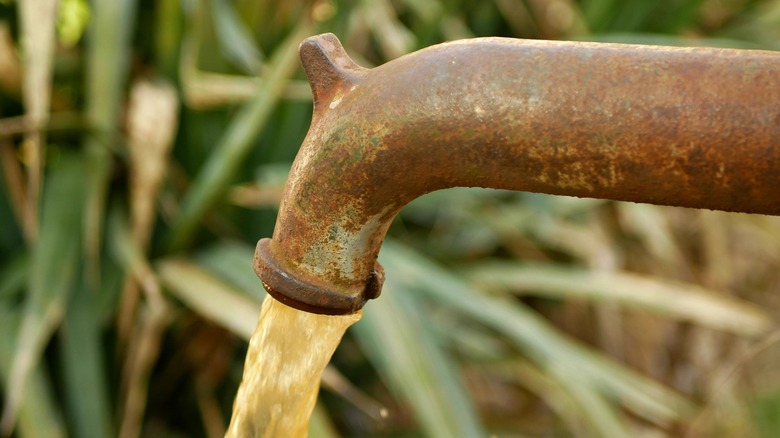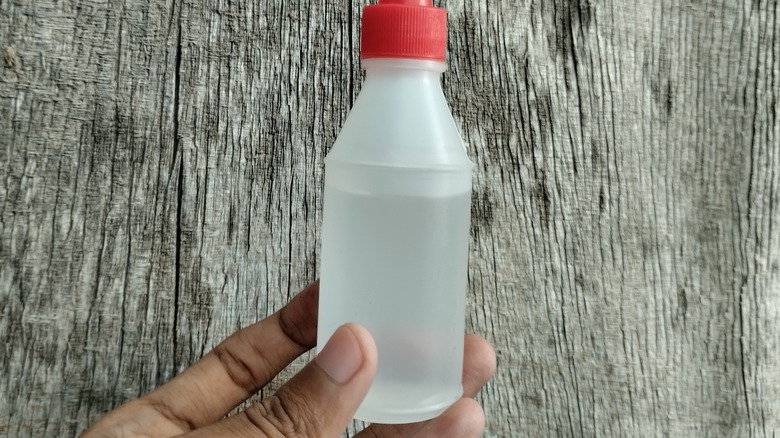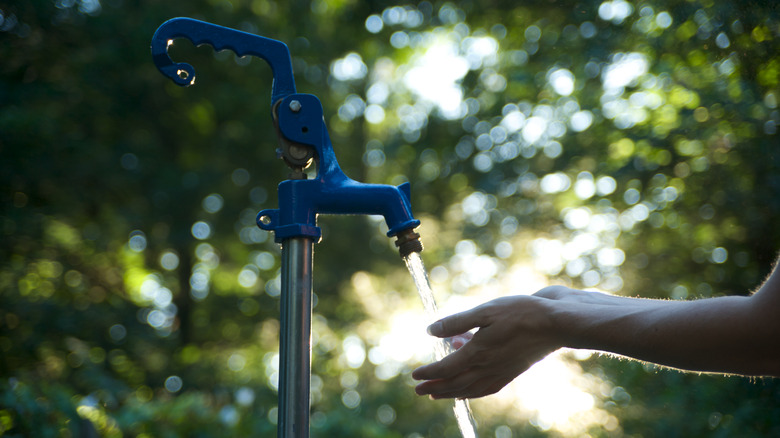Does Vinegar Work To Remove Iron Bacteria From Well Water?
Let's start with some good news. Iron bacteria cannot directly harm you. It has not been known to cause disease. However, this doesn't mean the presence of iron bacteria in your well water shouldn't concern you. Far from being harmless, iron bacteria can create an environment that allows other disease-causing vectors to thrive. Plus, they can make your water smell bad. In the end, your water will not be suitable for consumption. The worst part? All the cash you've used to put up your well may all go down the drain.
That's why you should pull out all the stops to remove iron bacteria from your well. In doing this, it makes sense to consider simple and inexpensive hacks, including vinegar, a versatile cleaning tool. If anything, vinegar is a popular disinfectant. Maybe it's your secret to a sparkling clean sink. Alternatively, you might use it to remove bad smells, especially on the dirtiest surfaces in your home. The jury is out, however, on whether vinegar can be used to remove iron bacteria from well water. Exclusive use of vinegar — as you'll see — is even less effective.
You should not bank on vinegar alone to remove iron bacteria from your well water
Vinegar is an acid. It contains anywhere between 4% and 18% acetic acid. Acids — you may be happy to know— are used to treat iron bacteria. For starters, acids dissolve iron deposits by taking electrons from iron to make hydrogen gas and sparking the production of a salt compound that can dissolve in water. Moreover, acids can loosen bacterial slime — even kill bacteria. It's the reason our stomachs secrete hydrochloric acid.
Although vinegar is acidic and, hence, has some potential for removing iron bacteria, its effectiveness is a subject of debate. First, vinegar is not approved by the EPA as a disinfectant. Secondly, it's not 100% effective in eliminating germs, including some bacteria. Then again, the effectiveness of disinfectants, including vinegar, depends on several factors. These include the presence of organic matter, type of water (whether hard or soft), and duration of use. Organic matter, including dirt, can impede the effectiveness of vinegar. Unfortunately, the same holds true for hard water. Remember, well water is generally hard. If you have to use vinegar to remove iron bacteria from your well water, don't use it exclusively.
How to use vinegar to remove iron bacteria from your well water
While you can use vinegar, especially if you want to remove iron bacteria from your well water, it's better to use it alongside other solutions. Vinegar is typically used with chlorine — though you shouldn't mix the two directly. It's recommended that you disinfect your well under the guidance of a trained professional. However, the process typically starts by pumping the well and letting the water run for some hours. Then, you determine the amount of chlorine and vinegar you'll use, both of which are based on certain laid-out criteria. Next, mix the vinegar with a specified amount of water and add chlorine to the vinegar-water solution. Finally, pour the vinegar-water-chlorine solution into the well. After this, you'll still need to recirculate the solution and wait several hours for it to do its job until you can flush out the system.
If you have some training and experience in water treatment, you can follow the steps laid out on this Well Disinfection Sheet to get the job done. Otherwise, seek help from a water treatment professional or a private water systems contractor. This interactive map, used to find licensed well contractors in a specific area, can be handy. One more thing: Wait to use your well water until it is tested and declared fit for consumption. Ideally, testing should be done before and after the treatment procedure. So yes, while vinegar may help remove iron bacteria, it shouldn't be used alone or without the proper know-how.


